
With it secretly arrived the H1N1 influenza virus. Soon it spread across Bombay and travelled by train to the rest of the country. The “war fever”, as this new disease was then called, killed about 18 million people until the end of 1920 in India alone. No other country suffered such a high number of casualties. This number exceeded even the total number of lives lost in the War. The situation was exacerbated by negligence on the part of the colonial rulers, who did nothing to provide people with food in the face of a famine caused by drought. Reckless swindling of food grains out of India only made the rapidly deteriorating situation much worse. There were very few doctors to attend to the ailing as most of them were on War duty. The dying died with nearly no help.
This story is from the May 2020 edition of The Vedanta Kesari.
Start your 7-day Magzter GOLD free trial to access thousands of curated premium stories, and 9,000+ magazines and newspapers.
Already a subscriber ? Sign In
This story is from the May 2020 edition of The Vedanta Kesari.
Start your 7-day Magzter GOLD free trial to access thousands of curated premium stories, and 9,000+ magazines and newspapers.
Already a subscriber? Sign In

Panchakroshi Parikrama of Varanasi
At the snow-capped Kailas, the Divine Lord Shiva was seated with Mother Parvati.
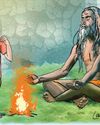
Gadai and the Monks
A fictional narrative based on incidents from the childhood of Sri Ramakrishna.

Chintayo momo maanosho Hori...
Sri Ramakrishna loved songs. There probably was no normal day when he did not sing some songs.
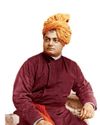
The Vedanta Vaccine
The world is still struggling under the impact of the pandemic due to Covid-19 for the last three years.
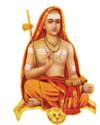
Chandrakirti's Chariot: Self in Madhyamaka Buddhism and Advaita Vedanta
The goal in Advaita Vedanta is the cessation of suffering and the attainment of true fulfillment. Suffering, according to this school, is due to ignorance of the true nature of the self and consequent erroneous identification with the body-mind.

Reminiscences of Sargachhi
Question: यद्यदाचरतत श्रेष्ठसतत्तदरेवरेतरो जनिः। ‘Whatever a superior person does, others do the same thing!’ (Gita 3:21) – What does this statement mean?
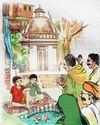
THE AUTUMN FESTIVAL
A fictional narrative based on incidents from the childhood of Sri Ramakrishna.
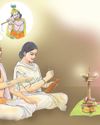
Bards of Guruvayur: Vilwamangalam II
Saints of India
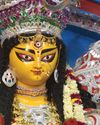
In the Universal Mother’s Divine Playground
Swami Vivekananda never taught the worship of Mother Kali. In a letter to Mary Hale he writes, “Kali worship is not a necessary step in any religion.
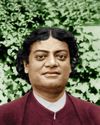
Swami Vivekananda: A Sportsman Par Excellence
In various books and articles, Swami Vivekananda has been called a spiritual leader, a prophet, a patriot, a social reformer, a philosopher, a yogi, a writer, an orator, an educationist, a musician, and so on.